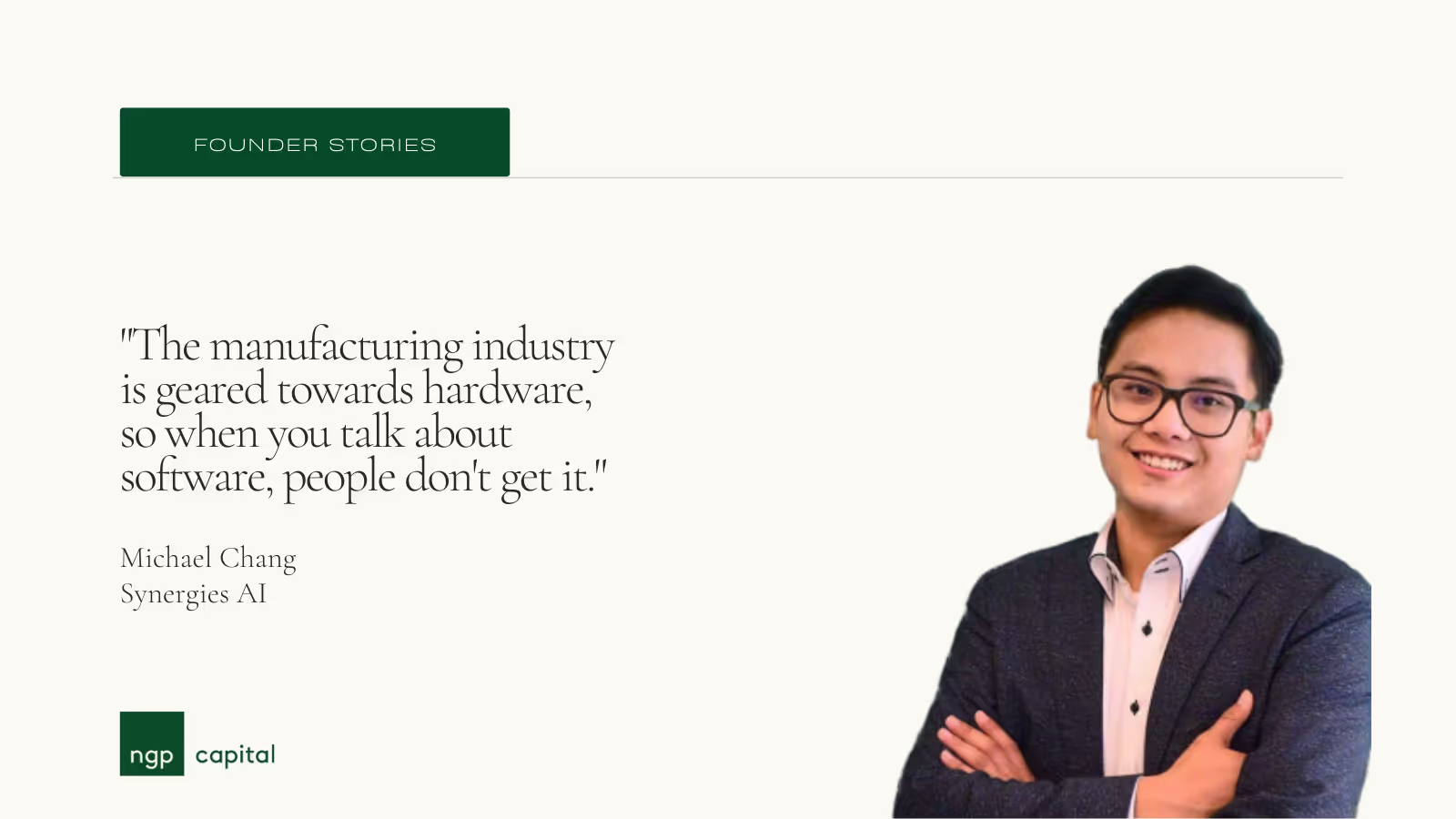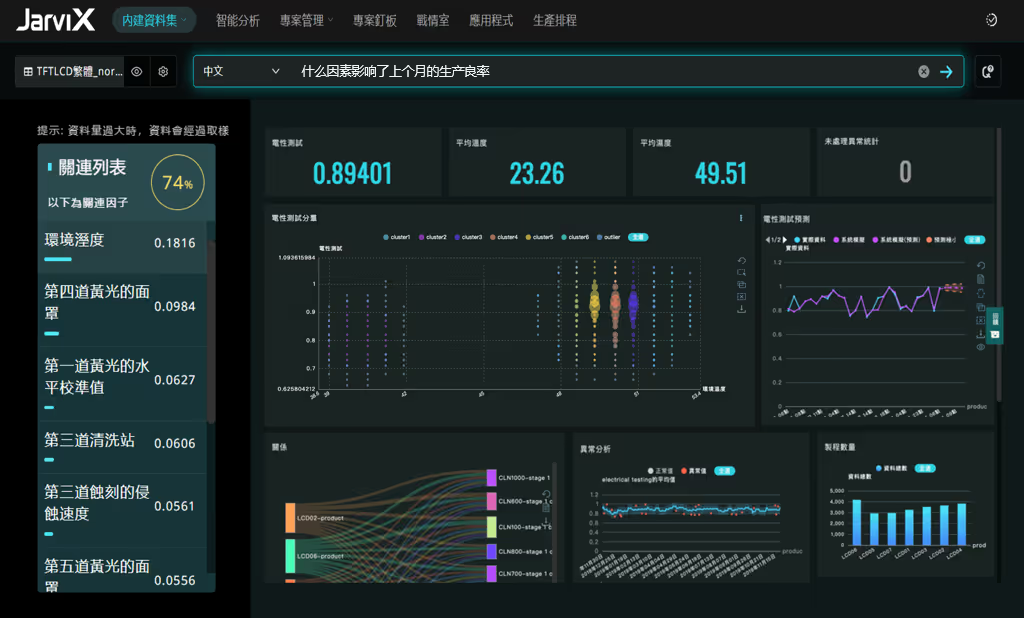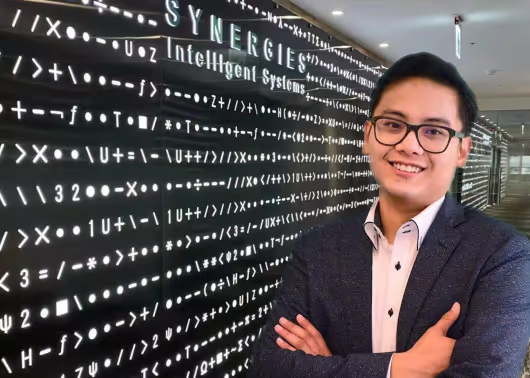Listen now
In May 2022, Synergies, an augmented analytics startup for the manufacturing industry based in China, announced raising $12 million in a series A round led by NGP Capital.

What was the initial inspiration to start your own business?
Ten years ago, the defect rate of Foxconn's Guangzhou factory rose from 1% to 10%. At that time, I had just graduated with a master's degree and joined Foxconn's R&D team. I tried to collect data on the machinery and the operating environment, and through a machine learning model, I had designed, combined with linear analysis, I eventually found the rare key factors including those related to the environment. At the time, Guangzhou was experiencing a cold snap not seen in 60 years, and the factory was heating up resulting in a drop in humidity. My findings saved the company US$20 million in losses.
This experience stayed with me for a long time and planted the seed for my subsequent entrepreneurial endeavors.
Then in 2008, with an interest in big data, I decided to pursue my studies at MIT. In less than three years I completed my Ph.D. in Electrical and Computer Science there and went to Wall Street to do further research on big data.
When I returned to China about five or six years ago, I thought the manufacturing industry would have changed dramatically in the last decade, but I found that many of the new technologies hadn't gotten off the ground.
So, in 2016, I founded Synergies, hoping to use big data to help more companies find the best path for operational decisions and drive the digital transformation of the manufacturing industry.
Why didn't you stay in Wall Street like many of your classmates, but returned to China to start your own business?
It is true that many people prefer to stay on Wall Street, however, I believe intelligent decision-making is a technology in manufacturing that has long been underestimated and has boundless opportunities.
Gartner reports that the business value derived from AI technology will grow by 39% - and estimates a global market value of $2 trillion, and data analytics is one of the big applications that will drive this growth.
In particular, the industrial sector has a large enough market opportunity. Just looking at China, a major manufacturing country, its GDP is more than RMB 110 trillion in 2021 amongst which the industrial GDP is about RMB 45 trillion. The change in the ways of production and rising labour costs make it urgent for industrial enterprises to carry out refined and data-based management.
It can be said that intelligent decision-making in China's manufacturing industry has a great role to play.
What do you think of the current state of intelligent decision-making in the manufacturing sector, and how are you addressing these issues?
Decision-making is still very chaotic in manufacturing, i.e., making decisions impulsively is common today.
For example, a manufacturing company can make a 10% profit on an order, but it is likely that because of the lack of control over the UPH (Units Per Hour) and product yield, coupled with overtime work (double pay for overtime on holidays), it may end up without making any money at all, or even lose money.
Another example is: a large-scale factory may have millions of different types of materials stored, which cannot be possibly managed manually, and this often leads to materials being scrapped due to storage challenges.
I believe the above losses can be completely avoided with the help of intelligent decisions.
Tell us more about how your platform solves customer pain points?
Our core product JarviX is a conversational AI-augmented decision platform, a general-purpose no-code SaaS based on enhanced analytics technology. To put it simply, we make an industrial version of Siri, where data analysis is done by talking or typing words.

In the past, decision makers were unable to grasp the company's real-time situation to make timely adjustments. We help our customers build a set of intelligent decision-making AI platform, similar to a central nerve of the enterprise, enabling the operations staff to see daily accounts, cost analysis, and variance analysis in real-time. This solves the core problem of the manufacturing industry: can I make money on each order or not?
Our ‘world's first conversational decision-making AI platform’ allows companies to eliminate the need for a team of professional analysts and data scientists. With the help of real-time data analysis, they can quickly find the cause of the problem, and solve the problem with the order of priority ...... these are the biggest value that Synergies can bring to the enterprise.
After using JarviX, one of our customers in consumer electronics reduced its project preparation time from 4 people 5 days to 5 minutes, a 95% increase in analysis efficiency. The time to find the cause and give recommendations was compressed from 1 day to 30 minutes, a 93% reduction in time spent.
Currently, we work with big clients such as Apple, supply chain companies including Foxconn and Jabil; Tesla supply chain companies such as Fuyao Glass and CX Tech, as well as major outdoor shoe supply chain Fulgent Sun etc.
What are the challenges you have encountered during your startup journey?
One of the biggest challenges has been educating the market. The manufacturing industry is geared more towards hardware, so when you talk about software, people don't get it.
When we first started, we struggled to tell stories that were clear and convinced our target customers. We had to learn to be patient and accept that we had to educate as well as sell to our prospects.
Additionally, because the users of our products are not necessarily technical staff, but operations and production line workers, it was important to lower the barrier to product deployment. This helps users learn the platform slowly and enables them to gradually upgrade their skills.
What advice would you give to other founders?
One of my tutors once gave me this advice: "You have to survive first as long as you can."
At that time, I was very young and didn't understand. But along the way, I've come to realize that this is the most important thing to remember when starting or building a business.
Of course, it's not just about simply surviving. It is also about how you can draw an achievable pathway at the beginning with limited resources, and eventually reach your dreams step by step.
One of the most common mistakes I see people make is launching a huge platform that is difficult to get off the ground. I’d suggest starting with a smaller and easy-to-implement application first.
For entrepreneurs, there are countless bumps ahead every year. When you look at yourself and the problems from a higher dimension and perspective and look at it over 5 or even 10 years, you may feel that the problems are not that serious.
What is next for Synergies?
We were thrilled that NGP Capital participated in our Series A+ round. NGP's participation not only provided us with capital to grow the business but introduced us to Nokia as our goal is to collaborate with Nokia in the future through our smart manufacturing solutions powered by private 5G networks in the global market.
After all these years, I have realized that the manufacturing industry is more complex than I had initially imagined. The core problem manufacturing companies face is to find out the root causes of the waste and solve them intelligently. No doubt, this is a cause I will keep doing.
And of course, I hope Synergies becomes a leader in China’s Industrial SaaS space within this year too!

.svg)






.svg)






